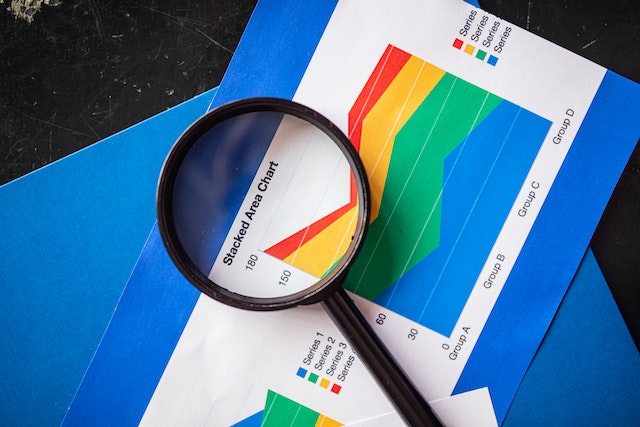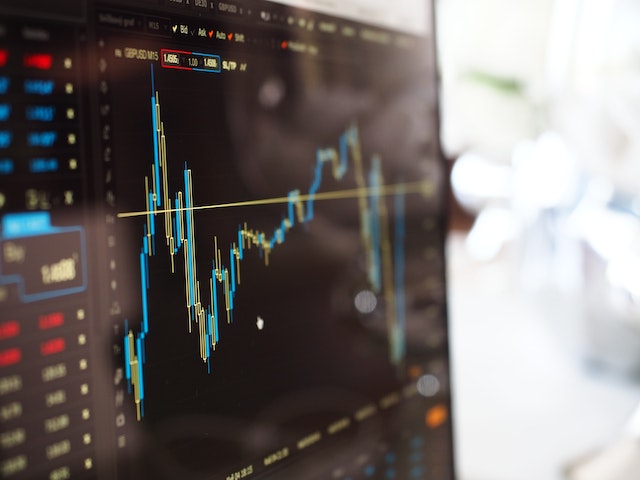Opinion piece by Maksym Koretskiy, investor, entrepreneur, and founder of Blackshield Capital AG and BI9 Capital, and Ilya Kislitsky, Head of the Analytical Department at Blackshield Capital AG
Over the past year, investor interest in commodities as an asset class has grown significantly. According to the J.P. Morgan Cross-Asset Outlook Year Ahead 2023, the growth was approximately 17.5%, while other asset classes fell in price. In particular, Real Estate -26%, Small Cap Stocks -18%, Emerging Markets -20.6%, and International Stocks -15%.
The trend of increasing value and investment attractiveness of commodities will continue to grow. What is it caused by and how can it be used in a long-term investment strategy?
 The first reason is on the surface: cyclical factors, such as the global economic cycle of slowdowns and recessions, reduced market liquidity, declining stock and debt markets, and geopolitical turbulence, have an impact. In times of uncertainty, investors always pay more attention to real assets. However, uncertainty is unpredictable and cannot serve as a basis for building long-term investment strategies, unlike a supercycle.
The first reason is on the surface: cyclical factors, such as the global economic cycle of slowdowns and recessions, reduced market liquidity, declining stock and debt markets, and geopolitical turbulence, have an impact. In times of uncertainty, investors always pay more attention to real assets. However, uncertainty is unpredictable and cannot serve as a basis for building long-term investment strategies, unlike a supercycle.
Two years ago, the financial world was debating whether or not there would be a fifth supercycle, a multi-year rise in commodity prices. In the first half of 2021, commodities rose exponentially. Over the year, the price increase ranged from 85% for corn to 357% for wood. We saw a significant price increase in the metals category: +86% tin, +47% palladium, +43% silver, etc.
And while at the time such a jump was perceived mainly as a short-term phenomenon, the current de-globalization and tensions in the world have only strengthened the trend towards the growth of the value of “real assets”. Decarbonization, structural growth in demand driven by government policies to redistribute resources, and almost a decade of underinvestment in hydrocarbons with a shortage of the required supply are all strong arguments for predicting the upcoming commodity supercycle.
If we look at the Bloomberg Commodities Index, the commodities market as a whole has been growing by 100%+ since March 2020.
Now, since the decline in energy prices, it is at around 60% growth. It is also important to take into account the US Federal Reserve’s decision on the interest rate – it is systematically approaching 5%. This decision is made because of stable inflation rates. Zero interest rates are a thing of the past, and to return to the state of “as it was before” would require a shift in the tectonic plates, as the Fed cannot cut interest rates quickly and significantly without damaging the economy and causing panic in the markets. Therefore, commodity assets will not fall in price quickly – there are simply no economic prerequisites for this.
The transition to green energy did not happen as quickly as expected, as modern technologies have not yet replaced fossil fuels and nuclear power. In addition, the development of green energy requires metal, copper, and electricity as never before. Since 2013, the new SDG standards have restricted most large private equity funds from investing in oil and minerals. At the same time, technological extraction did not develop, although it was transferred to third-world countries. In all this time – almost ten years – we have not seen any serious technological discoveries in this area. It is precisely because of the lack of investment over a long period of time, that there is a significant gap between the needs of the global economy and actual production volumes now.
A supercycle may not be linear, but rather a sequence of price spikes, and may extend over a decade with cyclical three-year periods of rebalancing global supply and demand.
There is a good saying: History does not repeat itself, but it does rhyme.
 During the dot-com crisis in the early 2000s, many investors lost faith in the future of the Internet sector. Interestingly, the year before, commodity assets began to grow – in some categories, the cycle was ten years with a 200% increase until the 2008 crisis (Mitsubishi UFJ Financial Group).
During the dot-com crisis in the early 2000s, many investors lost faith in the future of the Internet sector. Interestingly, the year before, commodity assets began to grow – in some categories, the cycle was ten years with a 200% increase until the 2008 crisis (Mitsubishi UFJ Financial Group).
The commodity markets began to grow at that time due to China’s strong demand for energy amid an economic boom. It was followed by events such as the Iraq War, the recovery and growth of the US markets, a prolonged period of a cheap dollar, and some other factors. The same story took place in the 1970s – growth was not continuous and was accompanied by corrections. On average, commodity assets grow by 600-700% during a supercycle (about ten years).
If we are at the beginning of a new supercycle, this is undoubtedly something to consider in an investment strategy.
Investments in commodity markets can be divided into several main groups:
- physical commodity assets traded on a stock exchange;
- direct investments in companies of this type;
- investments in public companies specializing in the production, extraction, processing, or distribution of commodity assets.
We recommend working with commodities as an independent asset class.
 There are several important categories within commodities. For example, industrial metals, which ensure the functioning of the real economy, the development of infrastructure, and ESG projects. Precious metals, which remain in demand in times of recession and are highly correlated with real yields and may grow against the backdrop of a weak dollar, can be separately identified.
There are several important categories within commodities. For example, industrial metals, which ensure the functioning of the real economy, the development of infrastructure, and ESG projects. Precious metals, which remain in demand in times of recession and are highly correlated with real yields and may grow against the backdrop of a weak dollar, can be separately identified.
If you invest in stocks, you should take into account companies engaged in the extraction of rare earth and precious metals, uranium ore – this sector is experiencing a new growth boom (more than 60% since March 2020) and has great prospects amid the growth in the number of small environmentally friendly nuclear power plants in Japan and the United States.
Of course, there are interesting companies with strong fundamentals in each of these sectors, but investing in them should be considered on a case-by-case basis, including depending on quarterly reporting, dividend stability, and management strategy.
The main advantage of commodities as an asset class is that they are global. This provides a diversification effect for traditional bond and equity portfolios in times of uncertainty, sharp inflation, and interest rate policy pressure. We recommend allocating 10 to 20% of an investment portfolio to this asset class.
For more insights within the finance sector head to Finance | London Business News.
Author bio:
 Maksym Koretskiy is CEO of Blackshield Capital, a group of investment companies with offices in Kyiv, London, Zurich, and Dubai.
Maksym Koretskiy is CEO of Blackshield Capital, a group of investment companies with offices in Kyiv, London, Zurich, and Dubai.
Experience:
– 20+ years as a financier and wealth manager, investor, and entrepreneur;
– philanthropist and philosopher
– founder of the corporate charity foundation “Art of Investment”, which aims to raise the level of investment literacy in Ukraine through educational projects;
– started his career at Barclays Investment Bank, London;
– before founding his business, he was an Associate Partner of large investment companies “Third Rome” and ”Platinum Capital”;
– more than $500 million of assets under management (AUM) on clients` accounts invested in strategies with varying risk levels
– extensive expertise in the formation and development of banks, insurance companies, brokerage firms, hedge funds, and fintech start-ups around the world
– CEO Club Ukraine (Member), CEO Club London (Member), The Aspen Institute Kyiv (Member), Soborna Ukraine (Director), Ukrainian Swiss Business Association (Member)
Maksym is a contributor of opinion articles to the following magazines and platforms:
Forbes Ukraine https://forbes.ua/ru/authors/maksim-koretskiy
New Voice https://biz.nv.ua/expert_author/maksim-koreckiy.html
Ukrainska Pravda https://www.pravda.com.ua/rus/authors/5b121b7e4bdaf/
Medium.com https://medium.com/@m.koretskiy
Author Profile
- Always on the chase after hot and trending London and UK business news that disrupt, inform and inspire.
Latest entries
 DictionaryMarch 17, 2025What is the Meaning of the Term “UK Business Directory”
DictionaryMarch 17, 2025What is the Meaning of the Term “UK Business Directory” Business Innovation NewsFebruary 27, 2025Meet the Belfast Business Leaders tackling Domestic Abuse and boosting Employment by launching a 12-Month Training Programme
Business Innovation NewsFebruary 27, 2025Meet the Belfast Business Leaders tackling Domestic Abuse and boosting Employment by launching a 12-Month Training Programme DictionaryJanuary 27, 2025What is the Meaning of the Term “Swinger Club”
DictionaryJanuary 27, 2025What is the Meaning of the Term “Swinger Club” DictionaryJanuary 11, 2025What is the Meaning of the Term “Work From Home Job”
DictionaryJanuary 11, 2025What is the Meaning of the Term “Work From Home Job”




